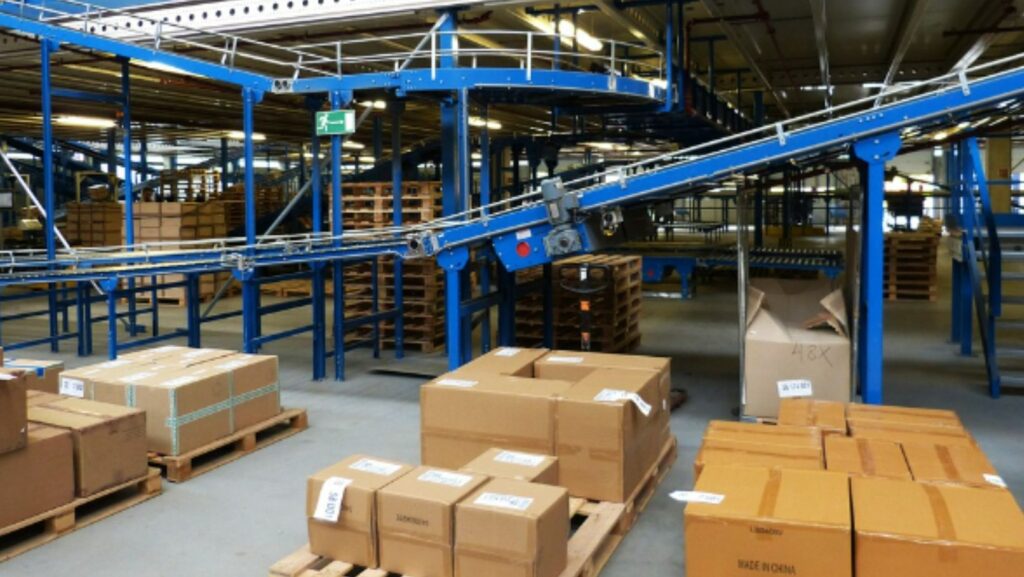The logistics industry is the backbone of commerce and trade, ensuring that goods move seamlessly from one point to another. Within this intricate ecosystem lies the often-overlooked role of freight brokers. These professionals are pivotal in connecting shippers with carriers. But what exactly does a career as a freight broker entail? And why should aspiring logistics professionals consider this path? This comprehensive guide dives deep into the world of freight brokerage, shedding light on the skills, opportunities, and challenges of this dynamic field.
The Role of a Freight Broker
Freight brokers don’t take possession of the freight themselves; instead, they coordinate and negotiate on behalf of their clients. This role is crucial in ensuring that shipments are delivered efficiently and cost-effectively. Explore the internet to find a site that guides you on becoming a freight broker. Look deeper into this source if you want to thrive in this career. Understanding the function of a freight broker is fundamental for those entering the logistics field.
A freight broker’s day involves a lot of communication and negotiation. They must liaise with carriers to find their clients’ most suitable transport solutions. This requires a keen understanding of logistics, market conditions, and pricing strategies. In essence, freight brokers are problem solvers, and their ability to juggle various tasks simultaneously is critical to their success. The growing complexity of the logistics landscape underscores the importance of freight brokers. With global trade increasing, there’s a heightened demand for streamlined operations. Freight brokers offer value by simplifying processes for businesses.
Skills Required to Succeed as a Freight Broker
Specific skills are indispensable for thriving as a freight broker. A freight broker must convey information clearly and persuasively to clients and carriers. This includes negotiating rates and resolving any issues during the shipping process. Additionally, organizational skills are crucial. A freight broker must manage multiple shipments simultaneously, ensuring each proceeds smoothly. Lastly, knowledge of the logistics industry is essential. Freight brokers must stay abreast of market trends and understand the nuances of transportation regulations and requirements. This expertise enables them to advise their clients and build trust within the industry.
Educational Pathways to Becoming a Freight Broker
While no strict educational requirements exist to become a freight broker, specific pathways can enhance one’s prospects. Many freight brokers start with a logistics, supply chain management, or business administration background. These fields offer foundational knowledge that is advantageous in the brokerage field.
Additionally, specialized training programs can provide significant benefits. These programs cover essential topics such as shipping logistics, legal requirements, and customer management. Completing a training course can give new brokers a competitive edge in the job market.

Freight brokers can also benefit from industry certifications. Organizations like the Transportation Intermediaries Association (TIA) offer credentialing programs that validate a broker’s expertise. These certifications can enhance credibility and open new opportunities in the logistics sector.
The Licensing Process for Freight Brokers
To legally operate in the United States, freight brokers must obtain a license. This process involves several steps, including obtaining a U.S. Department of Transportation (USDOT) number. This unique identifier is essential for all transportation intermediaries. Next, aspiring brokers must secure a freight broker bond, also known as a BMC-84 bond. This bond guarantees that the broker will adhere to industry regulations. It protects clients in case of any financial discrepancies. Finally, brokers must complete the registration process through the Unified Registration System (URS). Once these steps are completed, they can officially operate as licensed freight brokers, ready to serve clients nationwide.
Challenges Facing Freight Brokers Today
The freight brokerage industry has challenges. One significant issue is the volatility of the logistics market. Economic fluctuations, fuel price changes, and political factors can all impact shipping costs and availability. Freight brokers must be adept at navigating these uncertainties to maintain profitable operations.

Furthermore, technological advancements are reshaping the logistics landscape. Brokers must stay updated on the latest tools and technologies to remain competitive. Competition is another challenge. As more individuals enter the freight brokerage field, standing out becomes increasingly difficult. Successful brokers differentiate themselves through exceptional service, niche specialization, or innovative solutions.
The Future of Freight Brokerage
Despite these challenges, the future of freight brokerage is promising. The industry is expected to be driven by increasing demand for efficient logistics solutions. Emerging technologies are poised to revolutionize the industry, offering new opportunities for brokers to enhance their services.
Sustainability is another trend shaping the future of freight brokerage. With heightened awareness of environmental issues, there is a growing demand for eco-friendly shipping solutions. Brokers offering sustainable options will likely be advantageous in the evolving market. The global nature of trade presents further growth prospects. As businesses increasingly operate internationally, freight brokers with expertise in cross-border logistics will be in high demand. This international perspective offers exciting opportunities for expansion and innovation.
Freight brokerage is a dynamic and rewarding career path for those passionate about logistics and problem-solving. By understanding the industry’s intricacies, aspiring brokers can position themselves for success. Whether it’s through building strong networks, leveraging technology, or offering exceptional service, there are countless avenues for growth and innovation in this field. For those ready to take the plunge, resources and training programs are available to support your journey.
